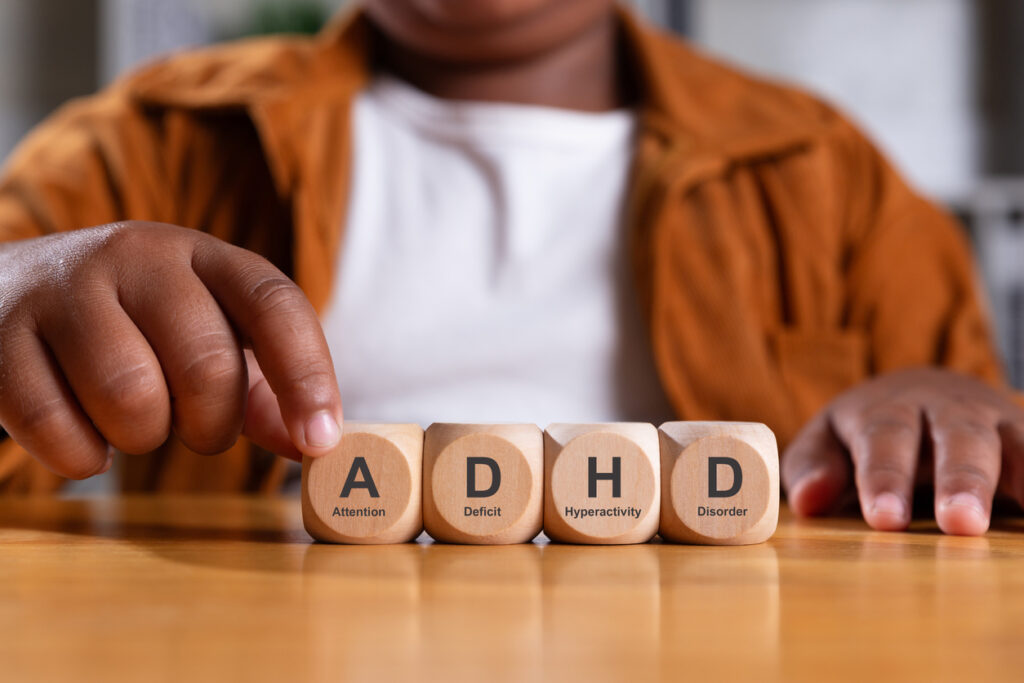Living with ADHD can feel like your brain has too many browser tabs open—constantly switching between thoughts, tasks, and impulses. While stimulants like Adderall help many manage symptoms, nearly 30% of patients don’t respond to medication, and others struggle with life-changing side effects, such as insomnia, appetite loss, and emotional numbness.
At Advantage TMS, we know patients deserve something better, which is why we recommend Transcranial Magnetic Stimulation (TMS) for our ADHD patients. This innovative, drug-free treatment uses gentle magnetic pulses to help “reboot” the brain’s focus centers—without pills, crashes, or dependency risks. New research suggests that TMS therapy may improve attention regulation while also simultaneously treating common ADHD comorbidities like depression and anxiety.
Read on to find out:
✔ How TMS targets ADHD at its neurological roots
✔ The promising science behind brain stimulation for focus
✔ Who makes an ideal candidate for TMS treatment for ADHD
✔ What typical treatment looks like
✔ How TMS complements (or even replaces) traditional ADHD therapies
For adults tired of medication rollercoasters and parents seeking alternatives for their teens, TMS offers new hope for clearer thinking and better days ahead.

ADHD is often misunderstood and oversimplified as simply the inability to focus. In reality, it’s a neurodevelopmental disorder affecting:
Traditional treatments include stimulant medications such as Adderall or Vyvanse or behavioral therapy (CBT, coaching). Some patients have reported an improvement in their symptoms with lifestyle changes including increased exercise and diet adjustments. But what if medication isn’t an option, causes too many side effects, or isn’t enough to treat your ADHD?
Transcranial Magnetic Stimulation (TMS) is a non-invasive treatment that uses magnetic pulses to stimulate less active parts of the brain that are linked to mood, focus, and impulse control. TMS therapy is FDA-cleared for depression and OCD, and emerging research suggests benefits for ADHD.
Studies indicate that ADHD involves dysregulation in the prefrontal cortex—the brain’s “control center” for attention and decision-making. TMS gently stimulates the brain’s prefrontal cortex, helping:
✔ Improve patients’ focus & concentration
✔ Reduce impulsive behavior
✔ Enhance emotional regulation and stability
A 2022 study in Journal of Psychiatric Research found that repetitive TMS (rTMS) improved attention and reduced hyperactivity in adults with ADHD.
TMS may help if you:
When you first come to Advantage TMS, we will start off with a detailed evaluation to determine if TMS is right for you. We will then identify the area for your brain to be stimulated through TMS therapy.
Within just 2-3 weeks of receiving TMS treatment, many of our patients with ADHD report being able to focus better. Other benefits our patients have reported include: reduced impulsiveness, fewer emotional outbursts, better sleep, and improved mood stability.
Fast-acting, widely available
Side effects (anxiety, insomnia, dependency)
No medication, long-term skills
Takes time, not always covered by insurance
Non-invasive, involves no medication, treats comorbid depression/anxiety
Requires multiple sessions, newer approach for treating ADHD
Why Choose TMS Treatment for ADHD:
– No systemic side effects (unlike meds)
– Can enhance therapy & medication effects
– Long-lasting improvements
A: While TMS is FDA-cleared for depression and OCD, research for ADHD is promising. Many clinics (including Advantage TMS) offer it as an off-label treatment.
A: Many patients sustain improvements for months to years, especially with occasional maintenance sessions.
A: Currently, TMS is primarily used for adults, but studies on using TMS therapy to treat adolescent ADHD are underway.
A: You can have insurance pay for TMS if you’ve been on medication for depression – and even though we’re treating you for depression, it will still have an impact on your ADHD symptoms. If you do not qualify via your insurance, we offer self pay plans with flexible, interest free payments.
If you or a loved one struggles with ADHD and wants a drug-free, science-backed alternative, TMS therapy could be the solution.
Call (727) 600-8093 or Schedule a Free Consultation
At Advantage TMS, we combine cutting-edge technology with compassionate care—helping you regain focus, control, and confidence.
Our office is closed Wednesday, October 9 and Thursday, October 10, 2024, due to the storm. If you have any questions or urgent requests, please email us at info@advantagementalhealth.com.
Please fill out the form if you have a patient interested in learning more about TMS treatment. We appreciate the referral and partnership.
Next Steps:
• Our TMS Coordinator will contact the patient to schedule a complimentary information session.
• If the patient decides to seek TMS treatment with Advantage TMS, we will communicate with you when necessary and the patient will continue to work with you while receiving treatment.
Questions?
• Please don’t hesitate to contact us at 727-600-8093 or info@advantagementalhealth.com
